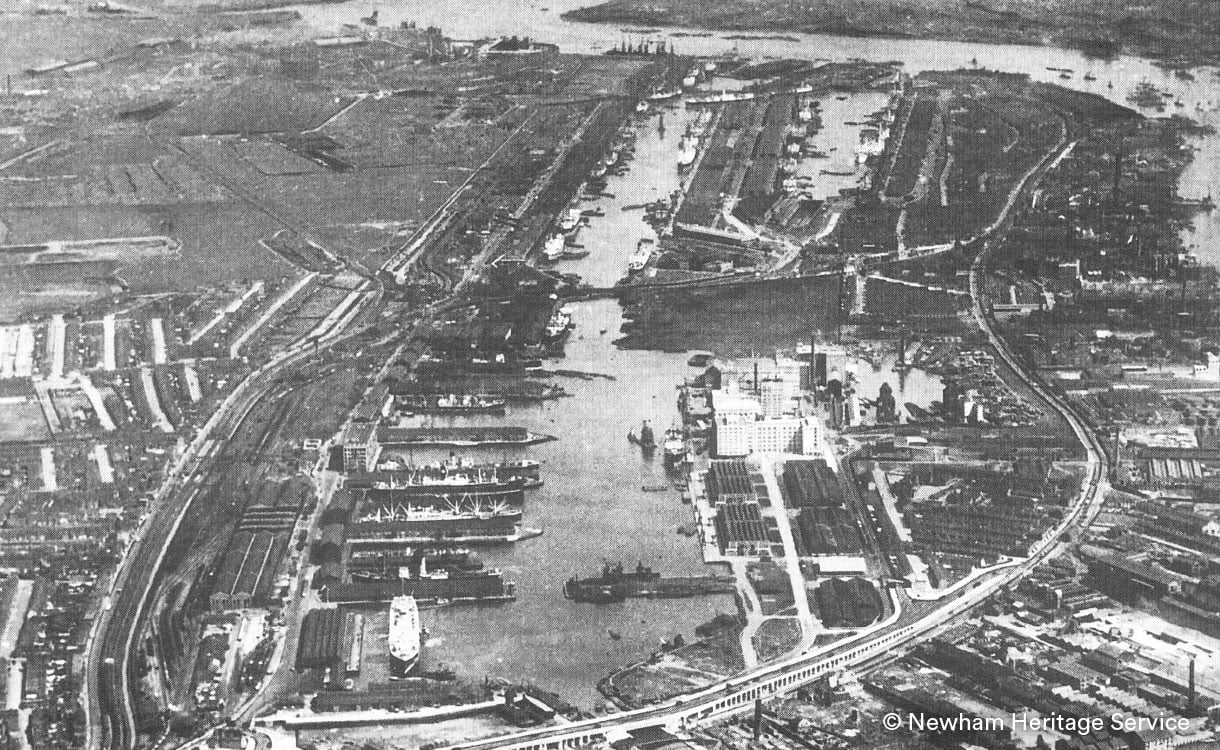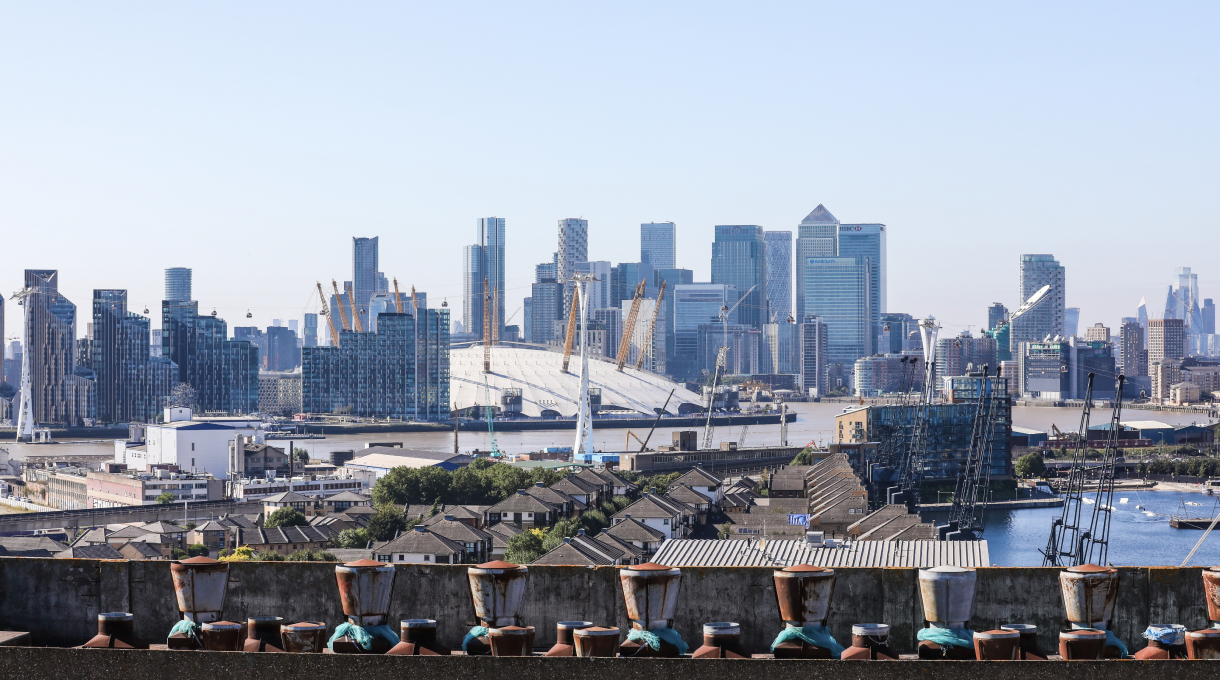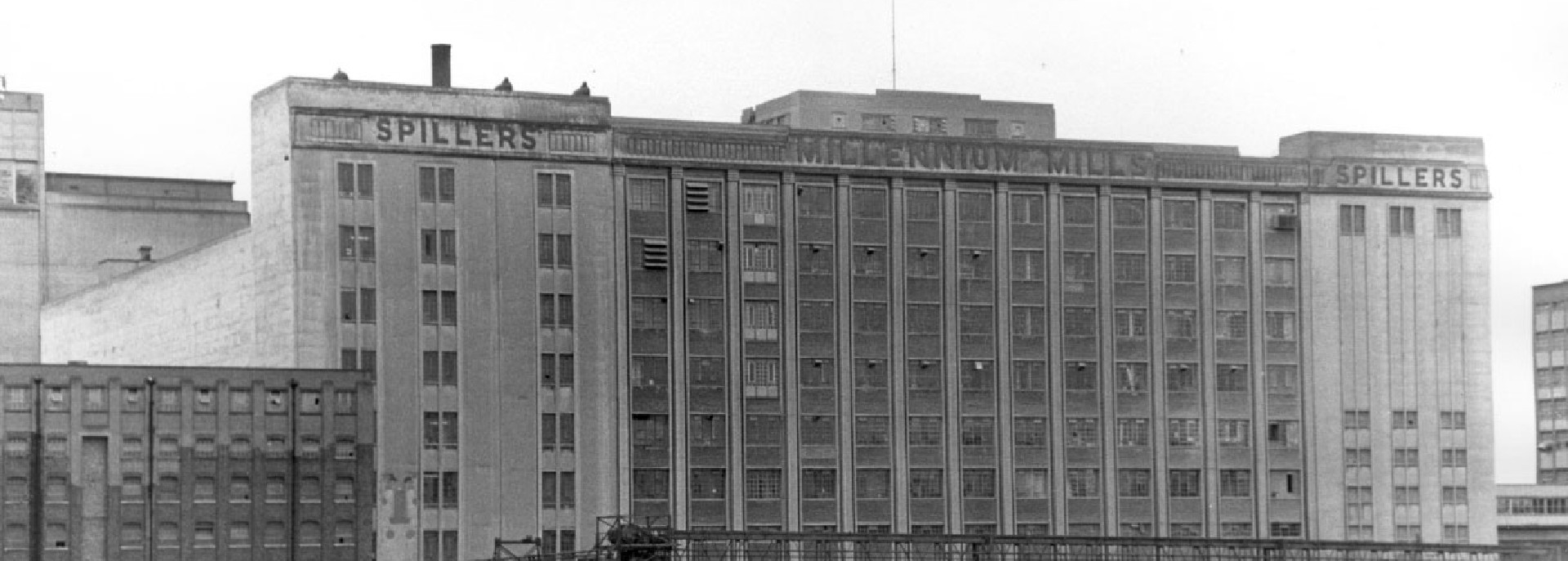
As we write Silvertown's next chapter, we're proud to honour its storied past. Central to the development, the reimagined Millennium Mills and Silo D will echo what went before and inspire all that's still to come.
The rapid development of the Royal Docks captures the industrious spirit of the Victorian age. Bigger, deeper, and more inventive than anything that went before, they powered London's insatiable growth and welcomed people, goods, and ideas to our capital from all over the world.
Rising up on Pontoon Dock, Silvertown was central to the action. Ours is a story of two eras: ship repairs and flour milling – with the startling remnants of both still dominating the waterside skyline. Read on for the story of Silvertown.
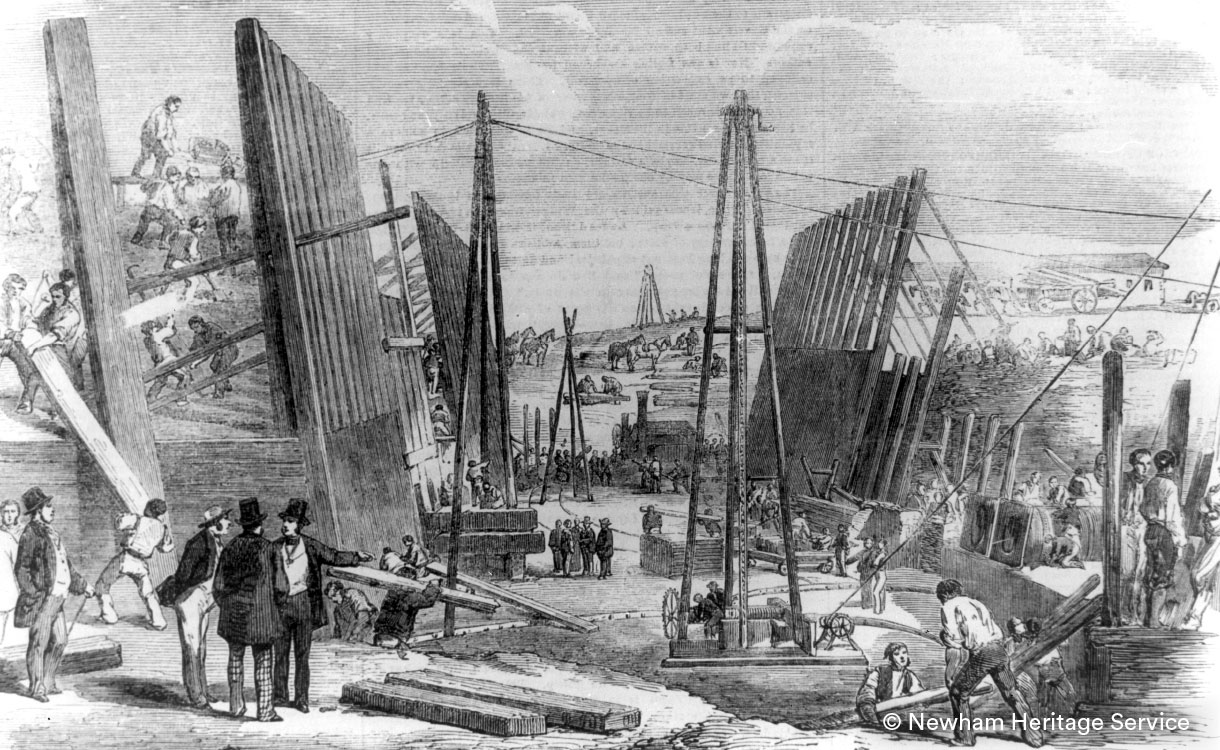
1855
It all starts with the Royal Docks. Upon opening, the Royal Victoria Dock becomes the largest manmade expanse of water in the world. Almost a mile long and 13 acres deep, it’s designed to handle the new iron-clad steamships transforming global trade. Before long, it’s hauling in huge cargoes of grain, meat, fruit and tobacco.

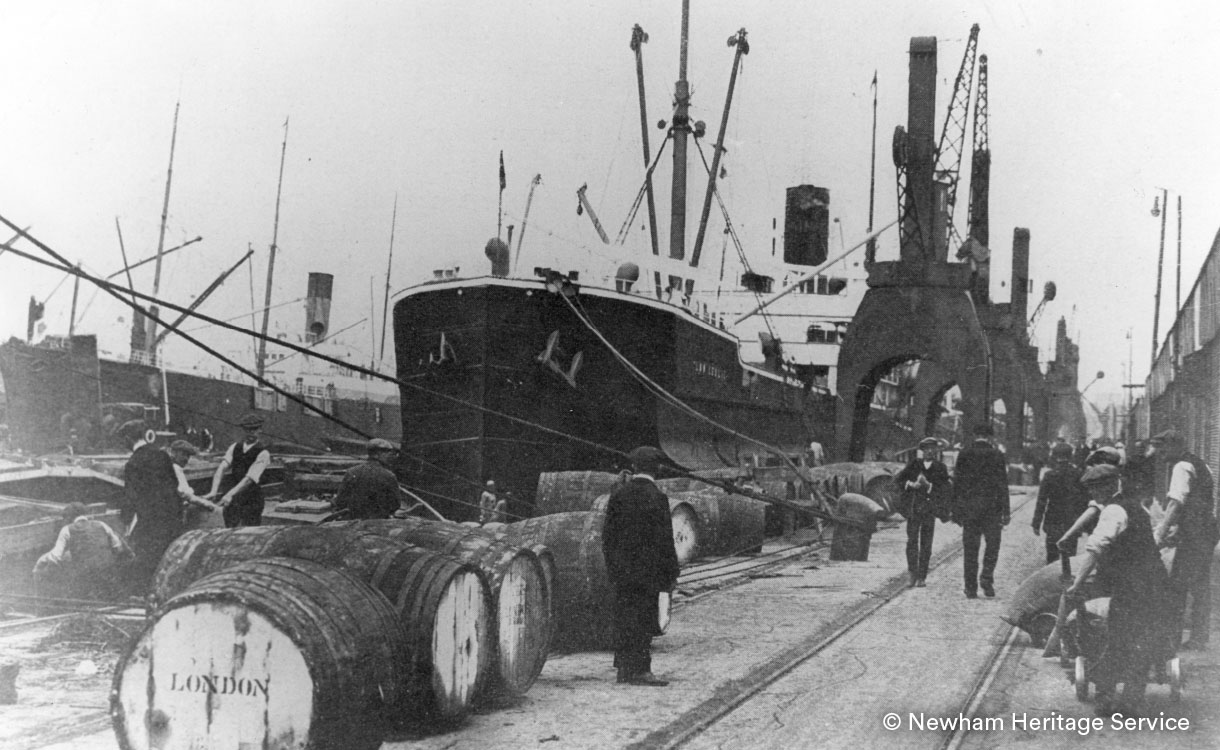
1855 — 1897
A pioneering ship repair yard is built on Pontoon Dock, an inlet of Royal Victoria Dock. Known as the Victoria Graving Dock, it uses a pioneering system of hydraulic jacks to haul great vessels from the water. However, as steamships outgrow the site, it falls into liquidation. Today, the original finger dock is set to become a community space for fun on the water.

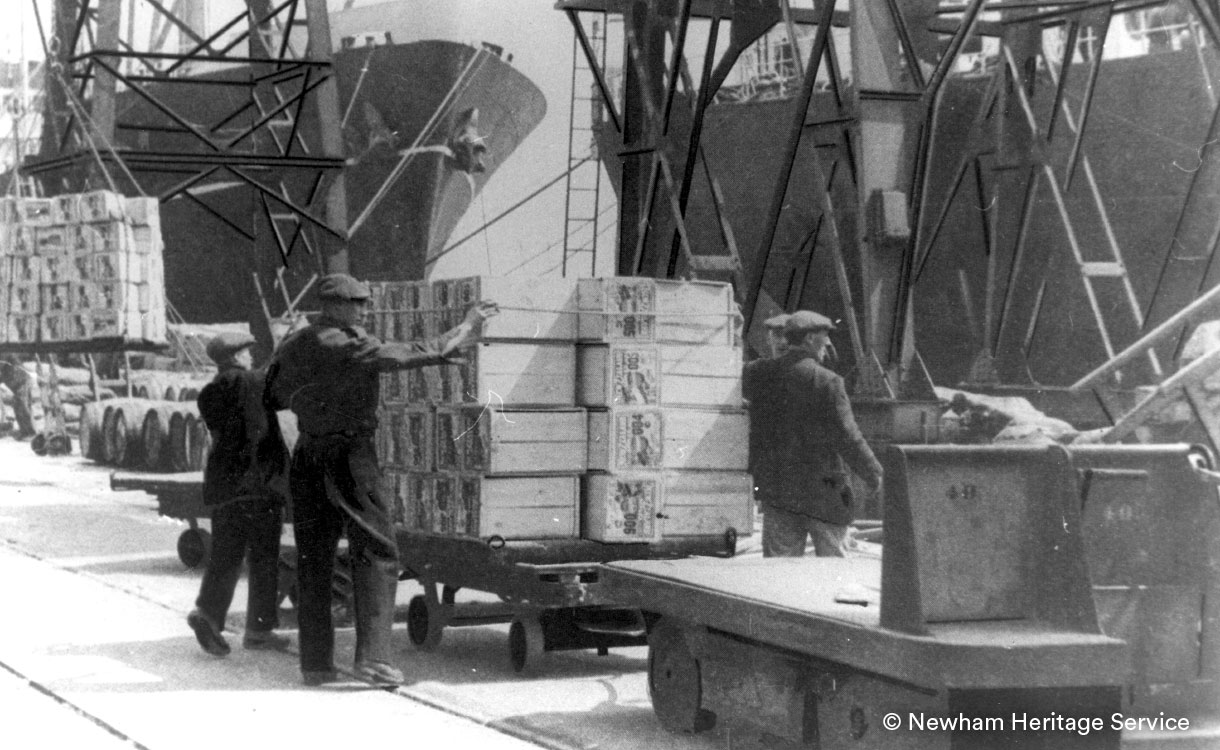
1897
Now under the ownership of the Katherine Dock Company, the Pontoon finds new purpose as a centre for handling grain and flour milling. It turns out to be an inspired decision. Powered by London's newfound love for white-bread sandwiches, a number of factories, granaries, and grain elevators begin to rise.

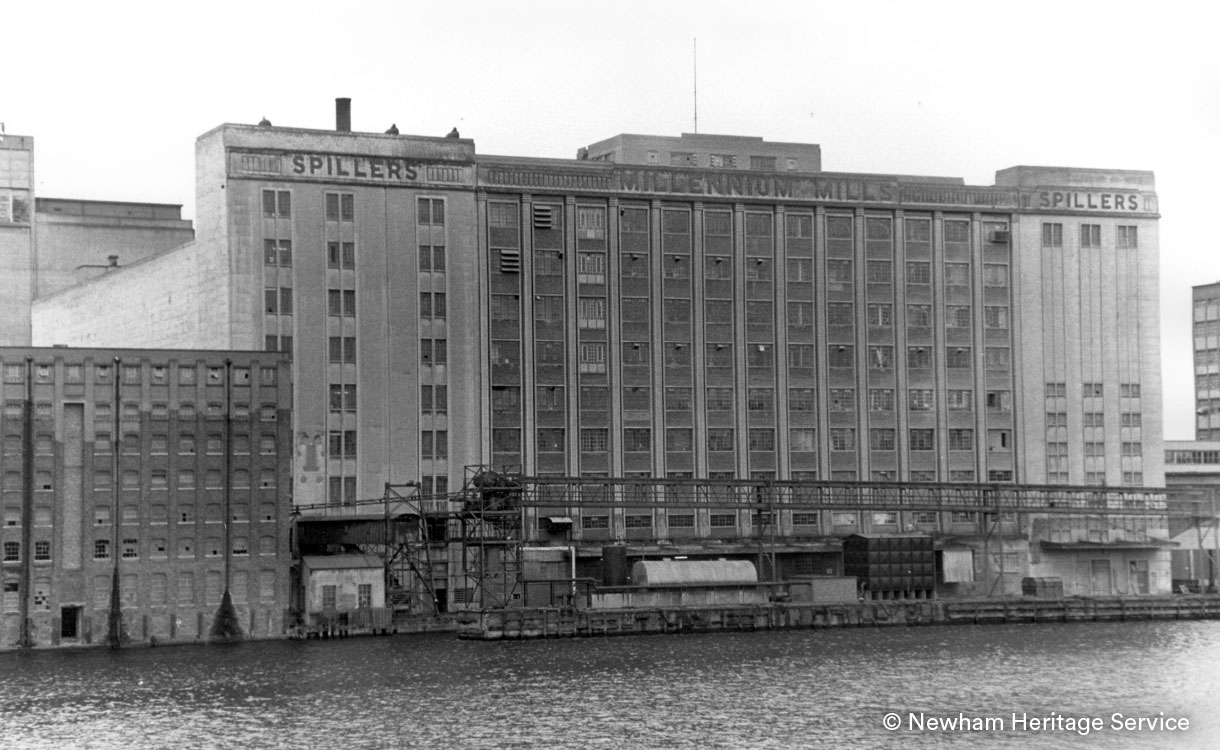
1905
The icon of East London is constructed by Vernon & Sons and named after the wildly popular 'Millennium Flour' produced there. Standing 10 stories tall and once the largest of its kind in Europe, it's the only 20th century mill in the area still standing. Vacant since 1981, it will soon be lovingly restored for its next chapter of life: providing next-generation workspaces for Londoners.

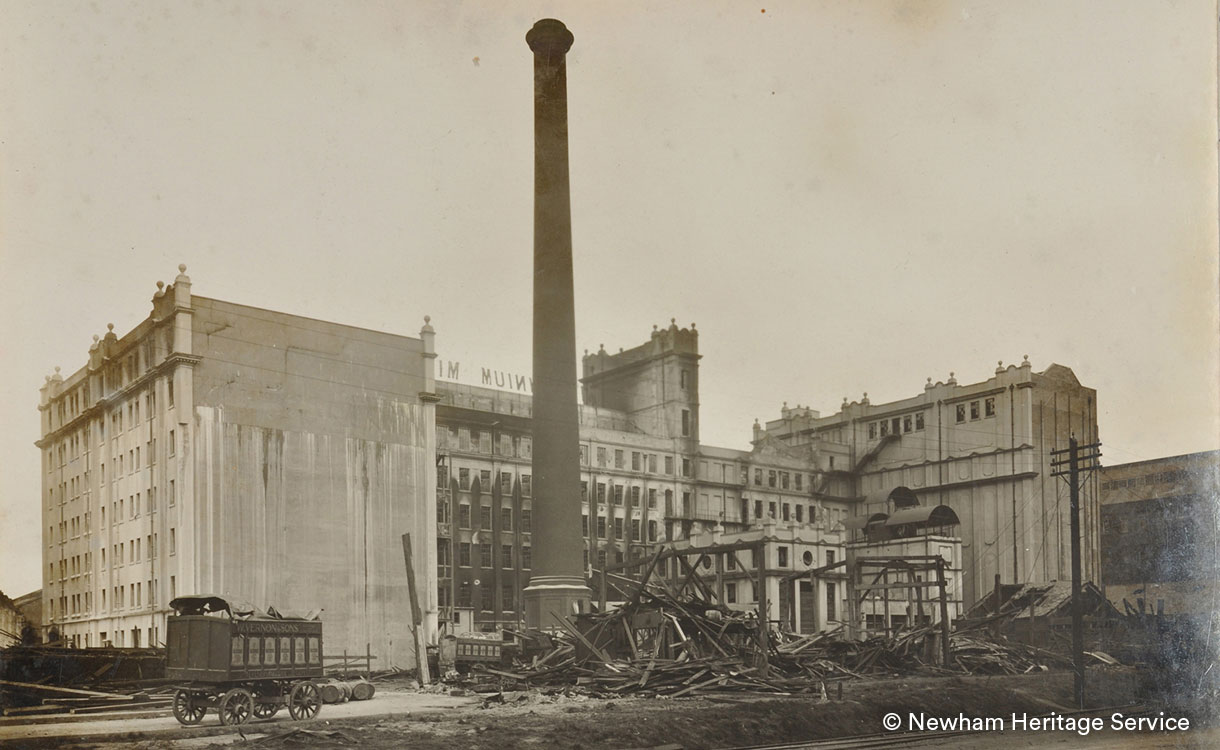
1917
Over 50 tons of TNT explode while workers make munitions at a nearby factory. ‘The Silvertown Explosion’ kills 73 people and damages over 70,000 buildings, including Millennium Mills. The factory is rebuilt and extended by Spillers Limited – whose name adorns the building to this day.


1920
The monumental Silo D is constructed to hold imported grain before it’s processed in Millennium Mills. A rare lasting example of dockside architecture, the Silo is Grade II listed and will be sensitively reimagined on the finger of water it’s always faithfully served.

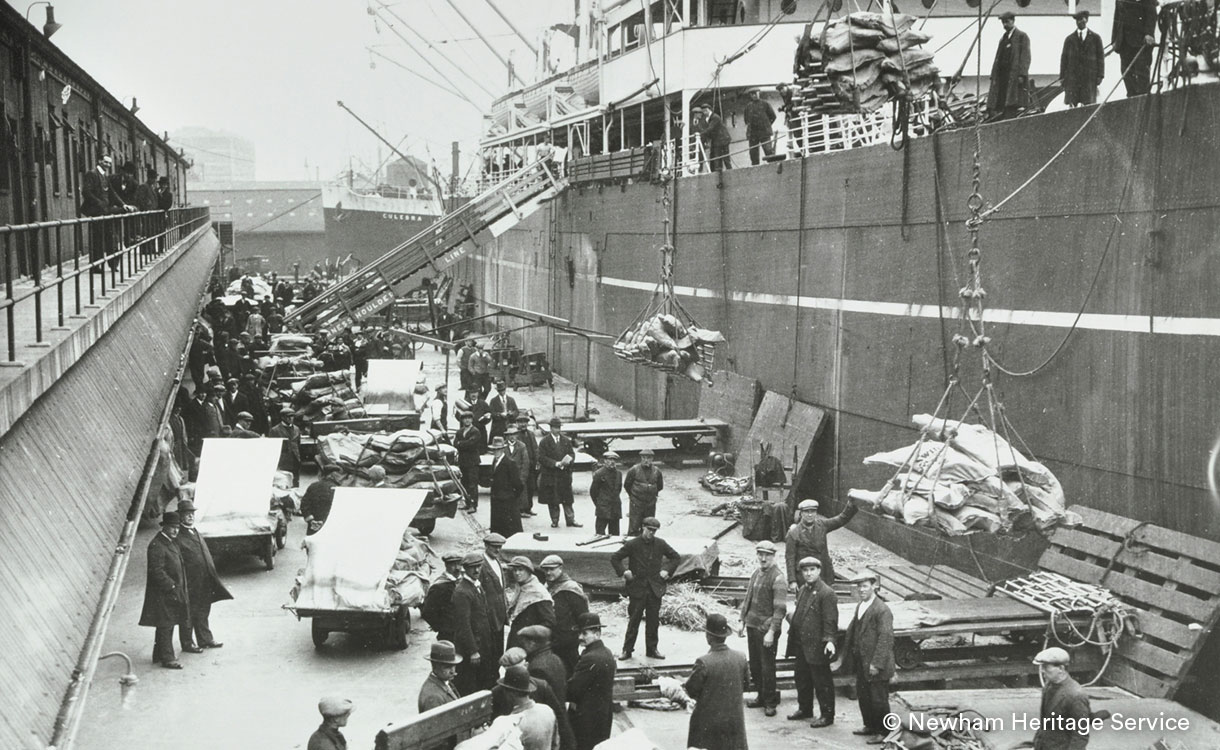
1933 — 1955
Flour milling and bread production is thriving in Britain and Millennium Mills is further extended to the building we see today. As mass production continues to rise, Spillers grows its operation significantly, where Silvertown expands significantly with housing to support the workers at the nearby factory.

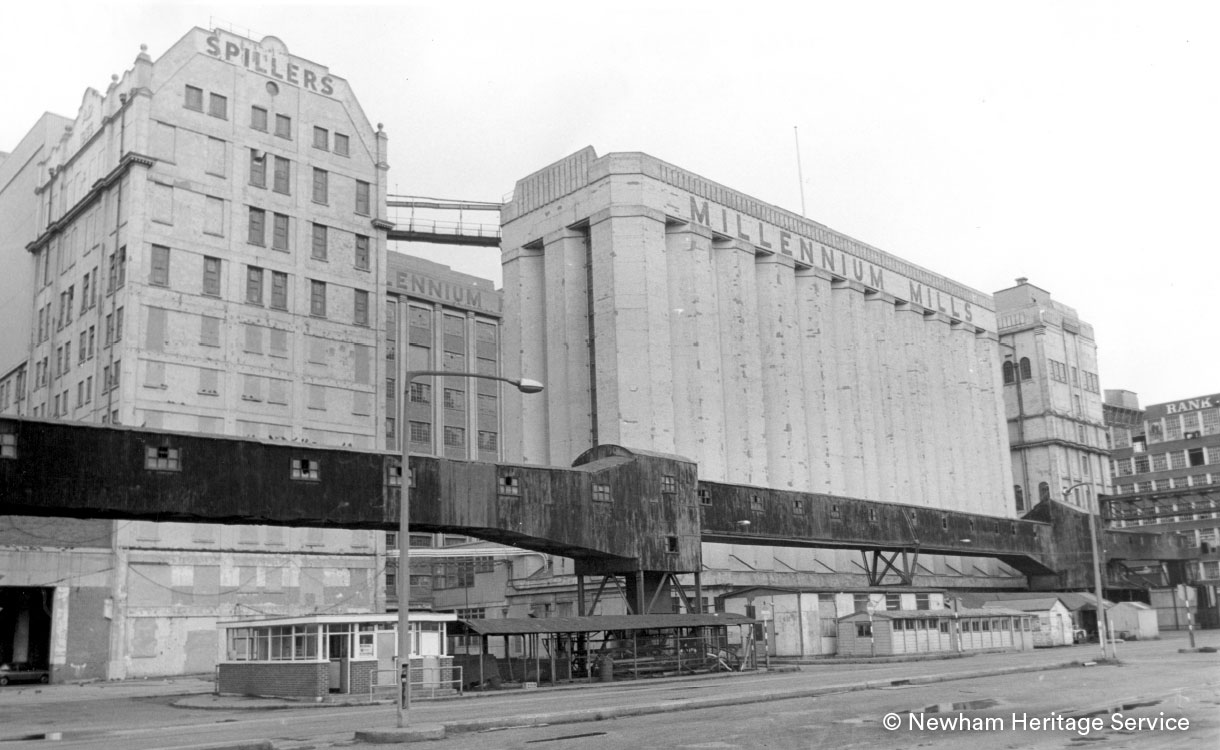
1955 — 1981
While production peaked in the 1960s, the machines of Millennium Mills finally fall silent as the Royal Docks close and Spillers Limited move their operation to Tilbury.


1980 — Present
Some places are just too iconic to fade away. Millennium Mills continues to enthral illicit ravers and urban explorers ever since the 80’s and 90’s, however today, it lives on in music videos, TV shows, and film productions. Its enviable show reel sees it star in Top Boy, Luther, Batman and Paddington 2, as well as music videos from Coldplay and Arctic Monkeys, and even fashion shows from Burberry.


THE NEXT CHAPTER
Millennium Mills and Silo D will now be given a new lease of life as part of the Silvertown development. With artefacts, including old milling equipment, flour sack shoots and old signage, woven into the design and interiors, the community will once again be able to enjoy the stark beauty of their industrial heritage while creating their own new memories.
